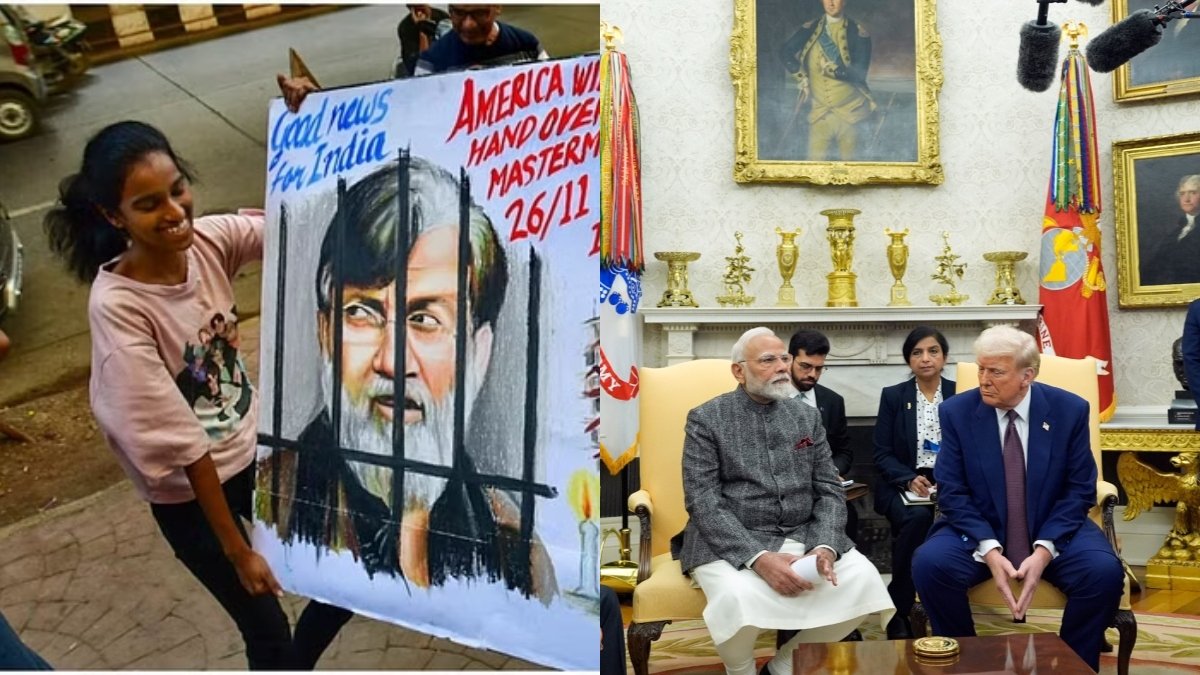
Tahawwur Rana (AKA Tahawwur Hussain Rana ) is a Pakistani-born Canadian national who came into the global spotlight due to his alleged involvement in the 2008 Mumbai terrorist attacks. The attacks, also known as 26/11, claimed 166 lives and left hundreds injured. While Rana was not physically present in India during the attacks, his connections with the perpetrators and his business’s alleged role in facilitating travel arrangements for one of the key conspirators, David Coleman Headley, raised serious legal and political concerns.
Early Life and Background
Tahawwur Rana was born on January 12, 1961, in Chichawatni, a town in Pakistan’s Punjab province. A former Pakistani Army doctor, Rana immigrated to Canada and later acquired Canadian citizenship. He established a business in the United States called First World Immigration Services, which had offices in Chicago, New York, and Toronto.
Rana’s immigration business would later become central to his legal troubles, as prosecutors alleged it was used as a cover to provide Headley with credentials for his reconnaissance missions in India.
Tahawwur Rana Connection to David Headley
David Coleman Headley, a Pakistani-American, was a key figure in the planning of the Mumbai attacks. Headley conducted surveillance on multiple targets in Mumbai, including the Taj Mahal Palace Hotel, Chhatrapati Shivaji Terminus, and other high-profile locations that were later attacked by operatives from the terrorist organization Lashkar-e-Taiba (LeT).
Headley and Rana were long-time friends, having attended military school together in Pakistan. Prosecutors claimed that Rana was aware of Headley’s activities and that he provided support through his immigration business to help Headley pose as a businessman. This cover enabled Headley to travel freely between the U.S., Pakistan, and India while preparing for the attacks.
Legal Proceedings in the United States
In October 2009, Rana was arrested by the FBI in Chicago on charges of conspiracy to provide material support to terrorism. In 2011, he was tried and convicted in a U.S. federal court—not for involvement in the Mumbai attacks, but for aiding in a separate planned attack against the Danish newspaper Jyllands-Posten, which had published controversial cartoons of the Prophet Muhammad in 2005.
Rana was sentenced to 14 years in prison in 2013. During his trial, Headley testified against him, further strengthening the prosecution’s case.
Notably, the U.S. court acquitted Rana of direct involvement in the Mumbai attacks, a decision that drew criticism from Indian authorities. However, new developments in subsequent years brought his name back into legal proceedings, this time in the context of India’s own investigations.
Tahawwur Rana Extradition Request by India
Image: A multi-agency Indian team is bringing him from United States to India on a special flight, to receive Rana.
In June 2020, India formally requested Rana’s extradition under the India–U.S. extradition treaty. The request was based on evidence and statements provided by Headley during his confessions and testimonies, along with investigative findings by India’s National Investigation Agency (NIA).
Indian authorities accused Rana of being directly involved in the criminal conspiracy behind the 2008 Mumbai attacks. They allege that his immigration business was instrumental in enabling Headley to conduct surveillance, thereby indirectly aiding in the execution of the attacks.
In May 2023, a U.S. federal court approved India’s request to extradite Rana, stating that there was “probable cause” to believe that Rana had committed the offenses for which India seeks to prosecute him. The court ruled that Rana did not qualify for protection under the “political offense exception” in the extradition treaty.
On 10-Apr-2025, Tahawwur Rana landed in India and will be kept in Tihar jail high security ward. NIA has requested court to transfer his case from Mumbai to Delhi, which was granted. NIA special court orders 18-day NIA custody.
Geopolitical Implications
The extradition case of Tahawwur Rana has wide-ranging geopolitical implications. It touches upon U.S.-India counterterrorism cooperation, the enduring complexities of the India-Pakistan relationship, and the challenges involved in prosecuting transnational terrorism.
India has long maintained that bringing all individuals involved in the 26/11 attacks to justice is a critical matter of national security and public sentiment. Extraditing Rana and trying him in an Indian court would be seen as a significant step toward closure for the victims and their families.
Conclusion
Tahawwur Rana remains a controversial figure whose case symbolizes the complexities of modern terrorism and international law. While already convicted of terrorism-related charges in the U.S., his possible extradition and trial in India could shed new light on the 26/11 Mumbai attacks and reaffirm the global commitment to combating terrorism across borders.
Read more news here.
Want to read more interesting blogs?
